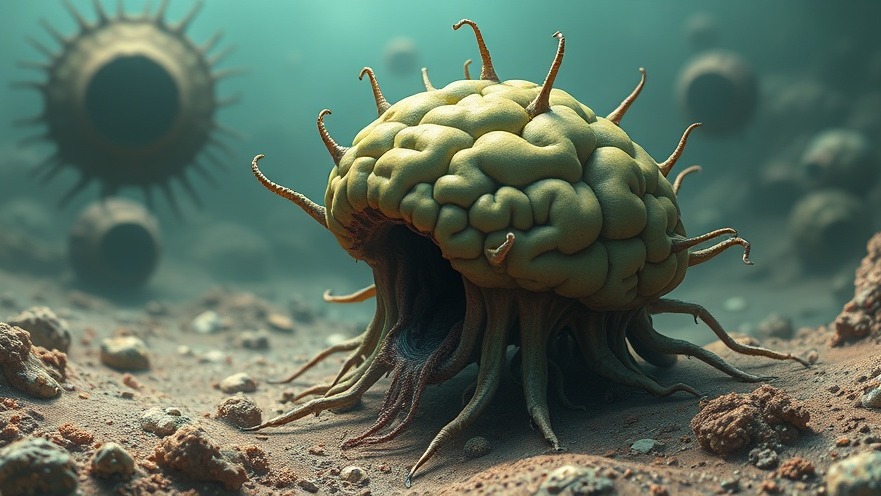
A Rising Threat: The Naegleria Fowleri Amoeba
India’s alarming increase in infections caused by the Naegleria fowleri, often dubbed the 'brain-eating amoeba,' has sparked a health alert across the southern state of Kerala. This year alone, the amoeba has led to 19 deaths and 72 infections, double the reported incidents compared to the previous year. Medical professionals, including Dr. Altaf Ali from a government task force, are taking decisive action, conducting large-scale tests to detect and treat new cases.
Understanding Naegleria Fowleri
The Naegleria fowleri amoeba resides in warm freshwater environments such as lakes and rivers. It can infect individuals when contaminated water enters through the nose—a route that allows the amoeba to reach the brain. The U.S. Centers for Disease Control and Prevention (CDC) highlights that infections from this amoeba are rare but incredibly fatal, with a mortality rate exceeding 95%. Symptoms typically begin with fever and headache but can escalate rapidly to severe forms of neurological distress including seizures and coma.
Community Health Concerns: Beyond the Numbers
The doubling of cases this year raises red flags regarding public health policies and preventive measures. Dr. Ali’s concern that new cases are emerging across Kerala, rather than from confined pockets, implies a broader issue requiring immediate community health awareness and response strategies. As infections spread, family members and health workers must be educated on prevention and early detection, emphasizing the importance of safe recreational water practices.
Global Trends and Statistics
Globally, nearly 500 cases of Naegleria fowleri have been recorded since 1962, predominantly in the United States, India, Pakistan, and Australia. Awareness of such deadly infections is crucial, especially as climate change potentially alters the environmental conditions that favor the amoeba's growth. Health experts predict that as regions warm, other areas may become susceptible to this infection, indicating that this biothreat could escalate without mismanagement.
Health and Wellness Practices to Mitigate Risk
In light of these developments, individuals living in or visiting areas prone to Naegleria fowleri must adopt optimal health and wellness practices. Avoiding warm freshwater lakes, ensuring swimming pools are properly treated, and learning about symptoms can be vital steps. These precautions align with a broader health and wellness movement, emphasizing education and preventative care to support community health.
Taking Action: What Can You Do?
To combat rising threats like the Naegleria fowleri amoeba in our communities, it is essential to stay informed and active. Participating in local health and wellness events, advocating for safe water practices, and engaging with wellness centers can significantly empower individuals to take charge of their health. Understanding community health dynamics helps cultivate a robust response to emerging threats, reflecting a shift towards proactive rather than reactive health strategies.
Your Role in Community Health
The health crisis in Kerala is a poignant reminder that public health challenges require a united front. By enhancing our knowledge and sharing vital information about such risks, we can shift narratives from fear to empowerment. Follow local news, support healthcare initiatives, and consider how your health and wellness choices contribute to collective safety. Eliminate misconceptions surrounding such infections and promote informed, healthy lifestyles among peers.
Conclusion: The Path Forward
As Kerala grapples with the rising tide of infections from Naegleria fowleri, it reminds us of the urgent need for integrated health and wellness strategies. Proactive health engagement not only empowers individuals but collectively strengthens community resilience. Engage with local health and wellness initiatives and play an active role in safeguarding your health and the health of those around you.
 Add Element
Add Element  Add Row
Add Row 




Write A Comment